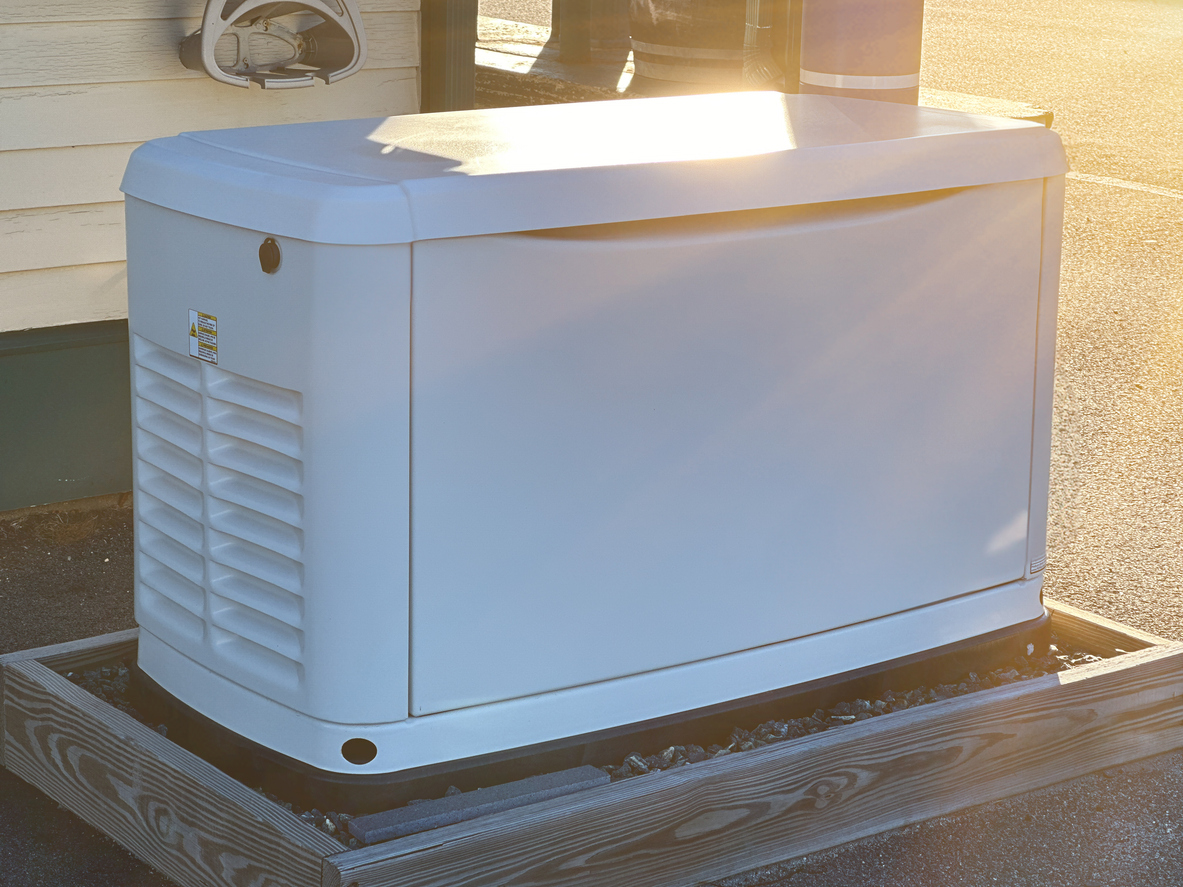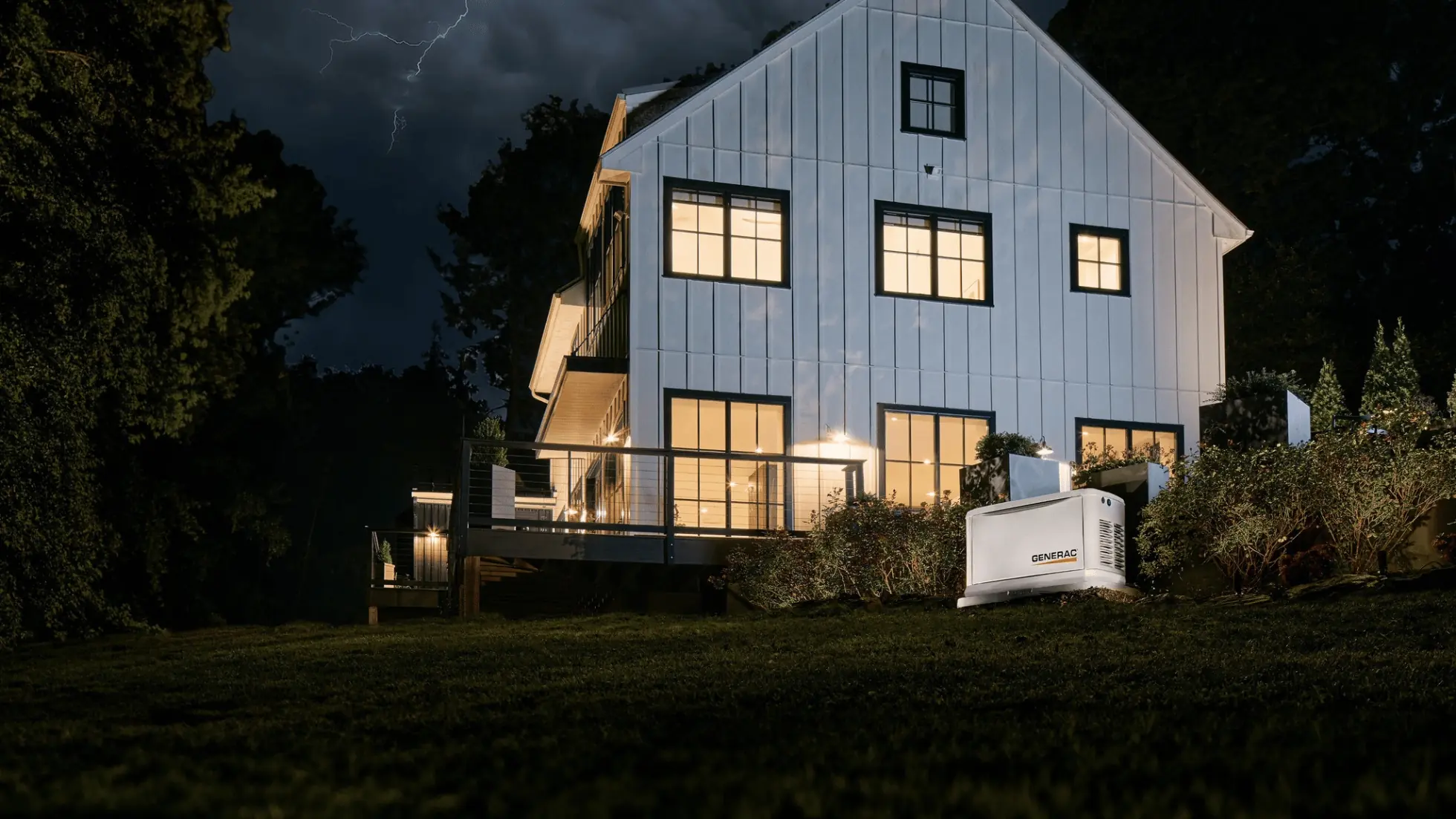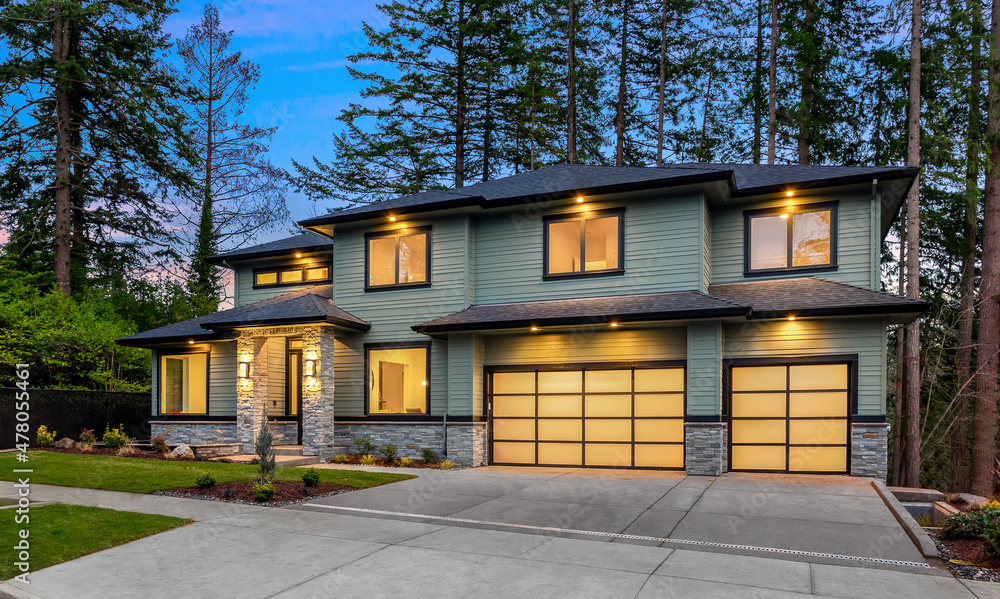How Much is a Permit to Install a Generac Generator

Installing a Generac generator isn’t just about picking the right size or choosing where to place it. You also need permits to make sure the installation is safe and meets local regulations. Permits aren’t optional—they’re required by law to ensure your generator is installed correctly and doesn’t pose risks to your home or the community.
The cost of a permit can vary depending on your location, the type of work being done, and the specific requirements in your area. Knowing what to expect can help you plan your budget and avoid surprises. In this article, we’ll break down what goes into permit costs and how they factor into your generator installation. If you’re ready to get started, Schedule an Estimate and let us handle the details for you.
Factors That Influence Permit Costs
The cost of a permit to install a whole home generator isn’t one-size-fits-all. Several factors can impact how much you’ll pay. Here’s what you need to know:
1. Location
Permit fees vary by state, county, and city. Urban areas tend to have higher fees compared to rural ones. Local regulations and demand also play a role in setting the price.
2. Type of Permits Required
Most installations need multiple permits, like:
- Electrical permits for connecting the generator to your home’s system.
- Plumbing permits for gas line installation, if you’re using natural gas or propane.
- Zoning permits to ensure the generator’s placement meets property line rules.
Each permit adds to the total cost.
3. Generator Size and Complexity
Larger generators or more complex installations can require higher fees. If the job involves additional work, like trenching or upgrading your electrical panel, those permits might cost more.
4. Inspection Requirements
Many areas include inspection fees as part of the permit cost. Some places even charge extra for re-inspections if something needs to be fixed and checked again.
Understanding these factors can help you plan better. If you’re not sure what permits you’ll need or how much they’ll cost, Contact Us and we’ll take care of the details.
Average Permit Costs
Permit costs for installing a Generac generator can vary depending on where you live. Local governments set their own fees, and they can differ even between neighboring counties or cities. Here’s a rough idea of what you might expect:
1. State and County Fees
- Florida: Permit costs in Florida often range from $100 to $300, depending on the county and the complexity of the installation.
- Georgia: Fees in Georgia can be as low as $50 in smaller towns but may go up to $200 or more in cities like Atlanta.
- Tennessee: Expect to pay between $50 and $150, with additional fees for inspections in some areas.
2. Type of Permit
Most installations require multiple permits, such as electrical, plumbing, and zoning permits. Each one may have its own fee, adding to the overall cost. For example:
- Electrical permits: $50 to $200.
- Plumbing permits: $50 to $150.
- Zoning permits: Varies by location, often under $100.
3. Inspection Costs
Some locations include inspection fees as part of the permit cost. Others charge separately for initial inspections and re-inspections if corrections are needed. These fees typically range from $50 to $100.
While these numbers give you a general idea, it’s always best to check with your local building department for exact costs. If you’d rather have someone else handle the process, Contact Us and we’ll take care of the details.
Who Handles the Permit Process?
Getting permits for a generator installation isn’t something most homeowners want to deal with, and for good reason. The process involves paperwork, following local codes, and coordinating inspections. That’s why it’s best to let the pros handle it.
1. Professional Installers Take Care of Permits
When you hire a professional installer, they’ll typically handle the entire permit process for you. This includes submitting applications, paying the fees, and scheduling inspections. They know the local codes inside and out, so they can avoid delays or rejections.
2. Why You Should Leave It to the Experts
Permits aren’t just about paying a fee—they’re about making sure the installation is done safely and legally. If something isn’t up to code, it could lead to fines or issues with your insurance. Professionals make sure everything is compliant from the start.
3. DIYers Should Be Prepared for Red Tape
If you decide to handle the permits yourself, expect to spend time researching local regulations and filing paperwork. You’ll also need to coordinate inspections with your city or county. It’s doable, but it’s a lot of extra work.
Letting an expert manage the permits not only saves you time but also gives you peace of mind that everything is done right. Ready to get started? Contact Us and we’ll take care of the details.
Additional Costs to Consider
When installing a Generac generator, there are other paperwork-heavy costs and requirements beyond the basic permit fees. Here are some things to keep in mind that are often tied to permits or regulatory compliance:
1. HOA Approvals
If you live in a neighborhood with a homeowners association (HOA), you may need written approval before installing a generator. This can involve submitting plans, paying administrative fees, and waiting for approval, which could add time and minor costs to the process.
2. Zoning or Property Line Variances
Generators need to be installed in specific locations to meet zoning and setback rules. If your desired location doesn’t comply, you may need a variance. Applying for a variance involves filing paperwork, paying a fee, and possibly attending a hearing.
3. Environmental Compliance
In some areas, you might need to show that your generator installation complies with environmental or noise ordinances. This could involve submitting additional forms or purchasing a noise-reducing enclosure to meet local standards.
4. Temporary Permits for Construction
Some municipalities require temporary construction permits alongside the permanent installation permits. These are needed to cover activities like trenching or laying concrete pads.
5. Revisions and Re-inspections
If plans or installation details change during the process, you may need to submit revised documents and pay additional fees. Similarly, if an inspector finds an issue during the final check, you may have to pay for a re-inspection.
Getting the right permits for a Generac generator might feel like a lot of red tape, but it’s all about keeping your installation safe, legal, and hassle-free down the road. From zoning rules to inspections, there’s plenty to handle, but you don’t have to do it alone. Let the pros take care of the paperwork so you can focus on enjoying the peace of mind a standby generator brings. Ready to get started? Contact Us and we’ll make sure everything’s done right, from permits to power





